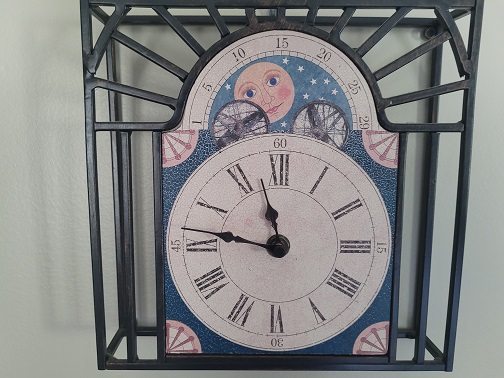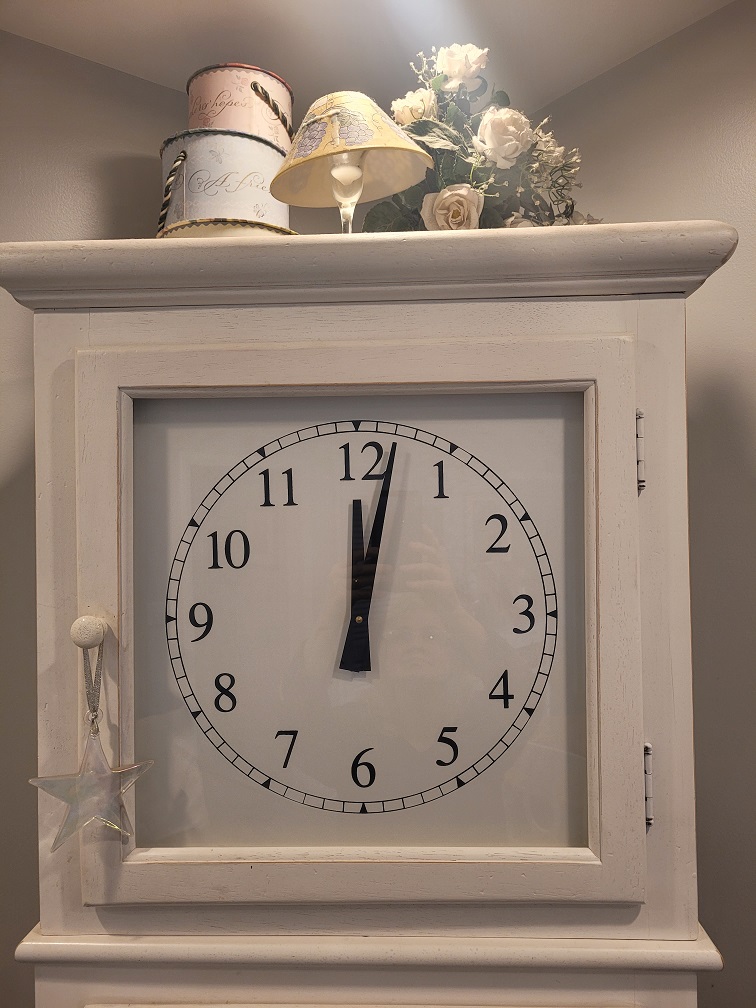You can’t accuse me of clogging email queues with incessant notices about new blog posts. I haven’t published a blog post in nearly a year. There are all sorts of reasons for that, but the biggest one is that I simply haven’t had anything to say. I don’t do placeholders. If I can’t tame the babble in my head into something cohesive enough to share, I don’t post.
Still, I’m startled by how much time has passed between posts. I honestly didn’t expect to be away this long.
My mom used to say (maybe too often) that time was whizzing past way too quickly. She knew she had the same 24 hours a day as everyone else, but her hours seemed more condensed. I filed those comments under “things-old-people-say” and just nodded.

You see where this is going.
Mom was right. I get it now. The older I become, the faster time races (although I still try not to say stuff like that out loud).
There are several theories about why time speeds up as we get older. One suggests that a year represents a larger portion of a child’s lifespan than it does a 65-year-old’s, making time seem to crawl for a child. Another explanation notes that because so many experiences and images are new to a young person, there is far more for the brain to process, and time “slows down” as it digests each new bit of information. Conversely, new experiences are harder to come by as we grow older, which creates fewer new memories to use as retrospective time milestones. Age-related changes in our vision and neurons slow the speed with which our brains receive and process the new mental images we do encounter. All this adds to the perception that time is speeding past us more rapidly than it did earlier in our lives.
(We could get into the whole debate of whether time actually exists at all, but let’s save that for another day.)

I have my own theory about why the texture of time changes as we grow older. For me, the acceleration of time (heavily laced with memories) is the Universe reminding us that our stretch on this planet is finite. If there’s anything we feel called to contribute, cherish, and/or explore while here … now’s the time to jump in.
I don’t think any of this is maudlin or morose. As in any good hotel, a well-timed wake-up call can keep you from missing something important.
Maybe you see where this one is going, too.
Publishing blog posts is not on my cosmic “hurry-up” list, but sorting through that babble in my head is. Communicating is. Reaching out is.
So I’m back to blogging. For now.
As always, I welcome conversations via either comment or email. I can be reached at jillmorrowbooks@gmail.com.









Jill, Does time transpire at a fixed rate for everyone, everywhere but seem faster of slower at different times in our life? I tend towards the opinion that it’s only in retrospect that it seems to race faster as we age. As children, time seemed to drag on forever as we awaited Christmas morning, whereas things such as birthday parties always seemed to come and go in a flash. I wonder if it’s worth thinking of time as more of a personal phenomenon we construct and within which we act instead of as stream in which we passively float along? Just a random thought. I enjoy your blogs, infrequent as they may be.
Very nice to ‘see’ you again, Jill!
So nice to see you writing again, Jill! And this particular post has an uncanny feeling of timeliness as these same observation have been on my mind a lot lately. Time seems to have sped up so much for me that as I recount things that occurred, and refer to them as “this past October”, I realize… no – wait, that was TWO Octobers ago. And so on. It’s been happening a lot lately and it has not gone unnoticed. I think your theories about neurons and processing of information is pretty spot on.
… and for the record, I would love to hear your thoughts about the illusion of time itself.
In the Middle Ages (I imagine you know this), the monastic day was divided into twelve hours from sunrise to sunset, with the following night comprising twelve equally-spaced hours from sunset to the follow sunrise. Depending on where in Europe you lived, it meant an ‘hour’ on any given day could vary. In England, a summer daylight hour would last nearly ninety minutes, while in winter it would race by in little more than thirty. In Old English, ‘an winter stunde’ (literally, ‘a winter hour’) meant, ‘a very brief space of time’.
Welcome back!
Thank you, Elizabeth. It’s nice to be back — I hope to stay for a while!
I agree, Joe. I also wonder about the impact of boredom on our perspective of time. Each UCC class in law school felt five times as long as it actually was.
Hi, Steve! Discussions about the illusion of time probably require wine!
Do you find that the pandemic “break” impacted your sense of time in any way?
I knew about canonical hours, but I didn’t know that they were divided in this way! Thanks! (I guess there were times of the year when canonical prayers really piled on top of each other.)
Good to see you back!
Thank you, Maripat. Looking forward to staying for a while!
I look at my time here on earth in terms of decades of my life and what was going on in world. Im just trying to make the most out of each day and milestone. I know I will be around a while in some form!!!!
Oooh, Michelle, that “in some form” part is intriguing!
Writing to you on the occasion of my youngest baby’s 17th birthday, so am I ever feeling this, today. There’s that old cliche, “The nights are long, but the years are short” about raising kids and damn, is that ever true.
Oh, Kristina, that IS true. If you want to make time fly, just add kids.
Happy Birthday to the child who will always be your baby.
Often wondered why it seemed like forever for Christmas and our birthdays to come around as a child and these days it’s just the opposite. I feel like I just put Christmas decorations away when I am pulling them out again. Wish I could slow things down a bit. Anyway, your explanation makes sense .
Welcome back!!! Enjoyed reading this.
Thank you, Mary. And I so agree. I wish time would slow down a bit. It’s a whirlwind.